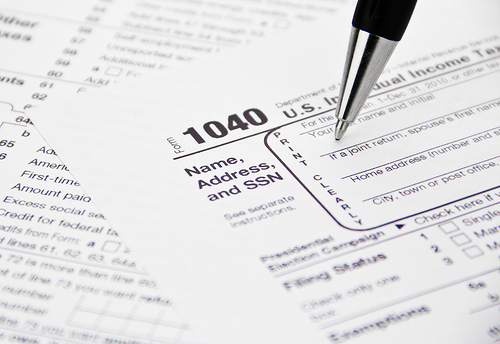As tax day fades into the past, now is the perfect time to plan out your summer getaway. But the challenge of arranging summer childcare while balancing work responsibilities can be particularly demanding for working parents. When caring for children during the summer months, costs can quickly add up. Intelligent tax deductions can help through flexible spending accounts and dependent care credits from summary time for Summer Tax Deduction.
Dependent Care Flexible Spending Accounts for Summer Tax Deduction
Should you have a Dependent Care Flexible Spending Account (DCFSA) provided by your employer, you can allocate up to $5,000 per household from your earnings to cover dependent care expenses ($2,500 for individuals who are married and filing separately).
One major advantage of utilizing a Flexible Spending Account (FSA) is the tax benefits associated with your contributions. When you contribute to an FSA, your funds are not subject to income or payroll taxes like social security and Medicare taxes. These accounts are also known as Dependent Care Assistance Plans or Dependent Care Reimbursement Accounts.
Who Qualifies for Dependent Care FSA?
When providing care, the individual in need should either be your child or, if dependent, should be younger than 13 years old or incapacitated.
Throughout the course of the year, the dependent child must not have been responsible for more than half of their own financial support.
- A taxpayer must be younger than the child in order to claim the child as a qualifying dependent.
- In order for married couples to qualify, both partners must have a minimum income of $5,000, with exceptions for spouses who are disabled, full-time students, or actively seeking employment.
- Make sure to spend the allocated funds before the year ends to avoid losing them.
One important requirement is that you enroll in the payroll tax deduction system offered by your employer at the start of the calendar year. This crucial step must be noticed.
What Expenses Qualify for Summer Tax Deduction?
Child Care Providers.
For parents utilizing their FSA to cover childcare expenses, it is essential that childcare providers furnish their taxpayer identification number, either their Employer ID number or Social Security number, to ensure reimbursement. This requirement necessitates that providers accurately report the income from childcare services on their tax returns.
Summer Camps.
When it comes to summer activities, day camps are eligible for reimbursement, while overnight camps are not covered. This distinction benefits parents who opt for a range of day camp experiences, like soccer, tennis, and computer camps. However, it’s important to note that tutoring and summer school programs are not considered eligible expenses for reimbursement during the summer months.
Payments to Grandma.
If you decide to enlist the help of family members like Grandma or other relatives to look after your children over the summer months, you may be able to receive compensation through your Dependent Care FSA program. It is important that the family member has a valid Social Security number and declares the income on their tax filings. While other relatives may also be eligible, this does not apply if they are considered your dependents. Therefore, you cannot compensate your 16-year-old to watch over the younger children and still claim them as a dependent on your taxes.
Child and Dependent Care Credit
In the event that you are not enrolled in a Dependent Care Assistance Program, you are eligible to seek still reimbursement for the child care expenses previously reviewed through the Child and Dependent Care credit. Individuals with an Adjusted Gross Income (AGI) of $15,000 or lower can potentially receive a federal tax credit of up to 35% of the expenses incurred, with a cap of $3,000 per child ($6,000 in total). The credit percentage decreases as AGI rises, eventually stabilizing at 20% for those with an AGI of $43,000 or higher.
Consider this scenario: Imagine you have two children and incur $1,000 in qualifying childcare costs for each child. As a result, you are eligible to receive a federal tax credit of $200 per child. This tax credit directly reduces the amount of taxes you owe.
Should I choose DCFSA or the Tax Credit?
Suppose you find yourself in a federal tax bracket of 22% and decide to contribute $5,000 to your DCFSA. This contribution can lead to savings of $1,100 on your federal income tax and potentially reduce your state taxes.
Furthermore, by opting to contribute to a Dependent Care Flexible Spending Account (DCFSA), you can lower your Medicare tax by 1.45% and potentially reduce your Social Security tax by up to 6.2%, as these amounts would not be considered taxable wages on your W-2 Form.
Suppose you decide to utilize the child and dependent care credit, rather than opting for a dependent care assistance program, to account for your expenses. If the credit is set at 20%, the $10,000 spent on child care will result in a $2,000 reduction in federal income taxes.
Lower-income individuals may be eligible for the more generous 35% tax credit. However, those in this income bracket typically do not owe federal taxes, and the credit cannot be refunded.
To the majority of guardians, opting for the DCFSA income exclusion proves most advantageous. Regardless of your decision, seize the tax-saving advantages offered by child care and day camp costs during the upcoming summer months.
In the previous year, regardless of the financial decisions you undertook, Apex Tax Services is here to optimize your tax benefits. Whether you prefer taking charge of your tax filing or entrusting a skilled and dedicated Tax Professionals from PriorTax, we guarantee that you will receive the maximum refund you are entitled to.













